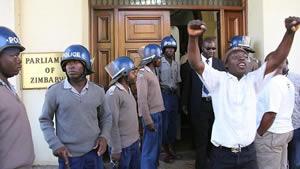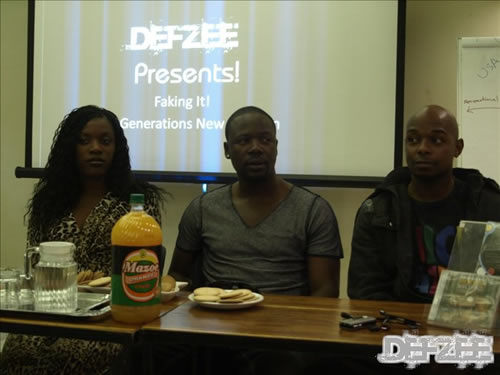MINDBLAST DISCUSSION – creating commercially viable art
Thursday, July 28th, 2011 by Upenyu Makoni-MuchemwaPamberi Trust in collaboration with the British Council and The Prince Claus Foundation re-launched their Mind Blast series last week. The aim of the Mind Blast discussions is to serve as a networking platform, and as a forum to discuss and debate the opportunities and challenges faced by the creative industry. The first of the discussions involved artists, civic society organisations and arts administrators and took place at the Mannenburg. The discussion was opened by an emotive and poignant performance of two Harare Files monologues by Tonderai Munyebvu.
A number of issues arose during the discussion, most significantly was the relationship between artists and civic organisations and the art that was created as a result. In a previous interview with Kubatana Rumbi Katedza said:
The challenge that has arisen here in Zimbabwe is that it seems to be the only direction that art has been taking over the last decade because that [civic organisations] is where much of the core funding has been coming from. Individuals and organisations will do art depending on what the key word is for that day. We’re stuck in a rut; we need to get out of that and create art for art’s sake.
During the discussion several artists echoed this sentiment and also expressed concern over the emergence of NGO agenda driven art. While it is noble to want to create art for its own sake, many artists noted that they too had to make a living and because of this, their art was subject to corruption for the purpose of delivering a message. Civics, it was noted, often demanded that art be explicit in conveying their message. Another artist expressed frustration that while local artists were forced to produce this kind of art, conversely, artists from the home countries of some donors and organisations were treated completely differently, and given the space to create and or perform their art without interference. Participants moved on to agree that art was created in response to the artist’s environment, and thus art was important in examining social issues.
There is in general a need to find alternative means for supporting art, and teaching artists and arts administrators’ sustainable business models. An oft cited example of a commercially successful Zimbabwean artist who has managed to stay true to his artistic voice is Oliver Mtukudzi, another example is Dominic Benhura. Their models for creating commercial viability vary but the outcome is the same: they are able to live on their art.











